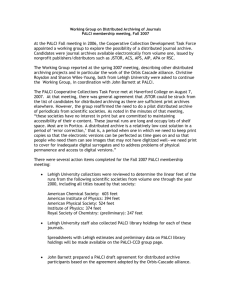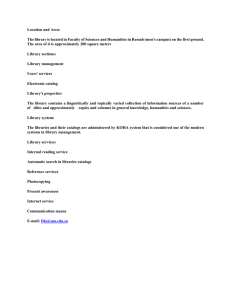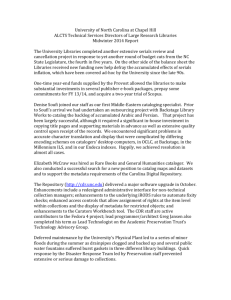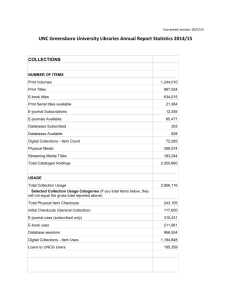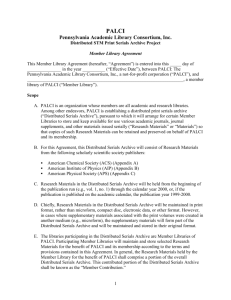PALCI Collections Task Force Agenda - palci
advertisement
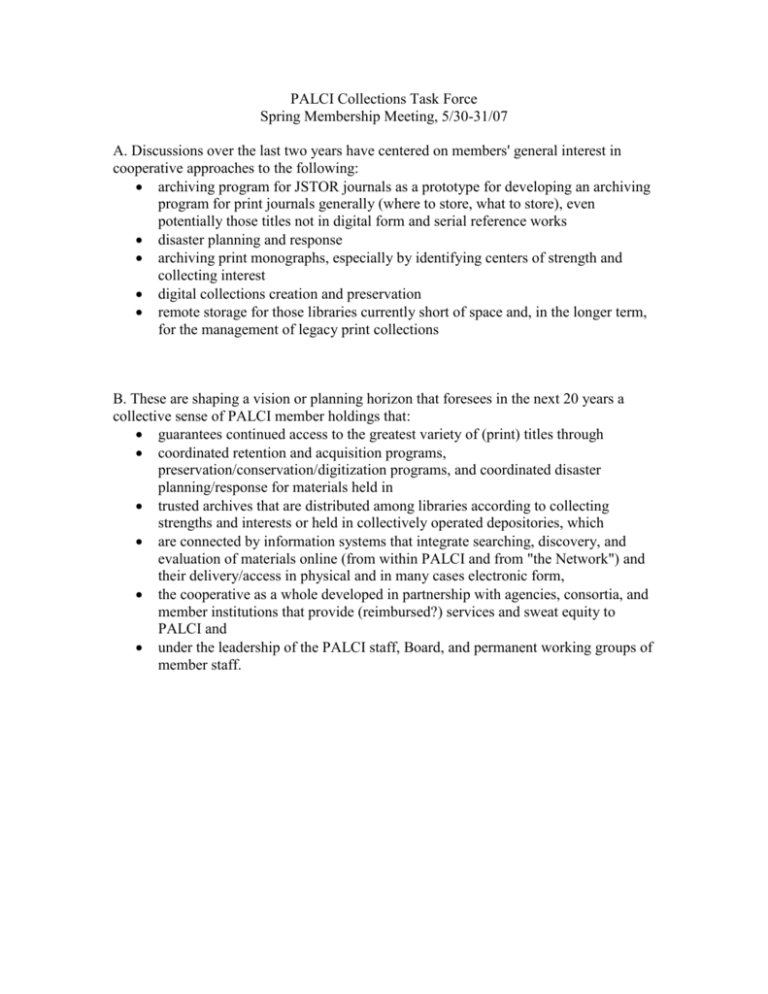
PALCI Collections Task Force Spring Membership Meeting, 5/30-31/07 A. Discussions over the last two years have centered on members' general interest in cooperative approaches to the following: archiving program for JSTOR journals as a prototype for developing an archiving program for print journals generally (where to store, what to store), even potentially those titles not in digital form and serial reference works disaster planning and response archiving print monographs, especially by identifying centers of strength and collecting interest digital collections creation and preservation remote storage for those libraries currently short of space and, in the longer term, for the management of legacy print collections B. These are shaping a vision or planning horizon that foresees in the next 20 years a collective sense of PALCI member holdings that: guarantees continued access to the greatest variety of (print) titles through coordinated retention and acquisition programs, preservation/conservation/digitization programs, and coordinated disaster planning/response for materials held in trusted archives that are distributed among libraries according to collecting strengths and interests or held in collectively operated depositories, which are connected by information systems that integrate searching, discovery, and evaluation of materials online (from within PALCI and from "the Network") and their delivery/access in physical and in many cases electronic form, the cooperative as a whole developed in partnership with agencies, consortia, and member institutions that provide (reimbursed?) services and sweat equity to PALCI and under the leadership of the PALCI staff, Board, and permanent working groups of member staff. C. Agenda (tools, policies, issues, planning elements, etc): define roles of individual and kinds of libraries, regional groups of PALCI libraries, other consortia (PALINET, AccessPA, other regional groups of academic libraries) easy, unified access to holdings information materials access/delivery systems (which texts in physical and which in digital form) resource discovery as well as known item search tool agreements about long-term responsibility for funding storage, preservation, conservation, and resource sharing a definition of the PALCI-wide (print) "virtual collection" agreement on which are the trusted repositories of e-texts and PALCI's regional role in providing light/dim/dark archives of print titles purchasing e-monographs and how we will share them (a PALCI-wide license?) PALCI library staff to think of consortial work not as an add on but as the way they do their local work consider libraries' different peer groups, affiliations, and funding mechanisms any plan has to ensure the preservation of print materials as most users move in the next 10-20 years to a preference for digitized texts for most initial search, discovery, evaluation, and reading for most texts under most circumstances; any plan has to take into account the mass digitization programs for monographs and what they mean for retention of print and how libraries other than the owner of digitized in-copyright copies can use them; when does digitization make storage of less-used printed texts obsolete; what kinds of texts, printed when? a collective approach to archiving material for future scholarship (popular works and other things we do not collect heavily--proactive approach); a system of incentives to collect and preserve unusual and unique materials coordinated or joint purchasing of new monographic literature
